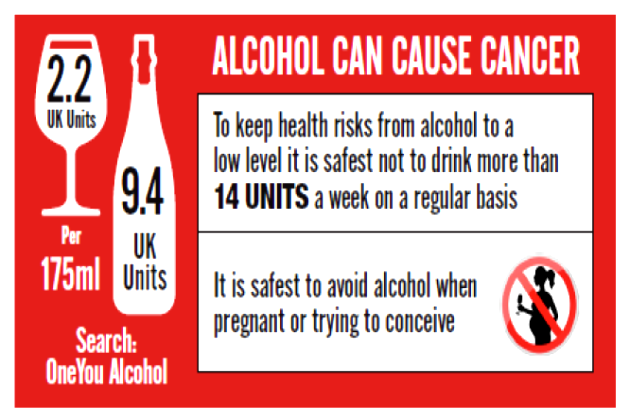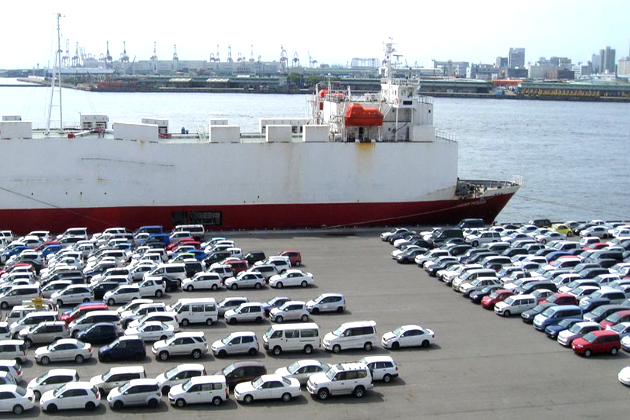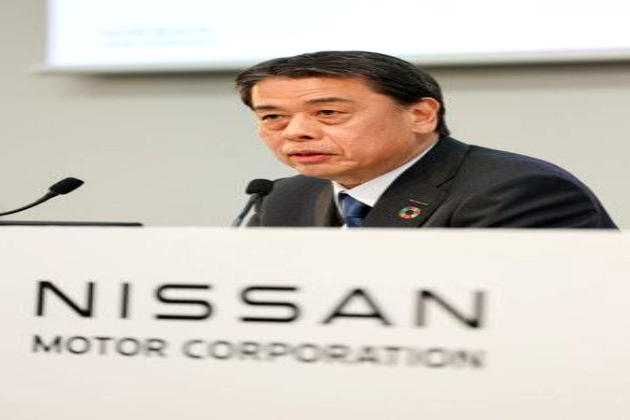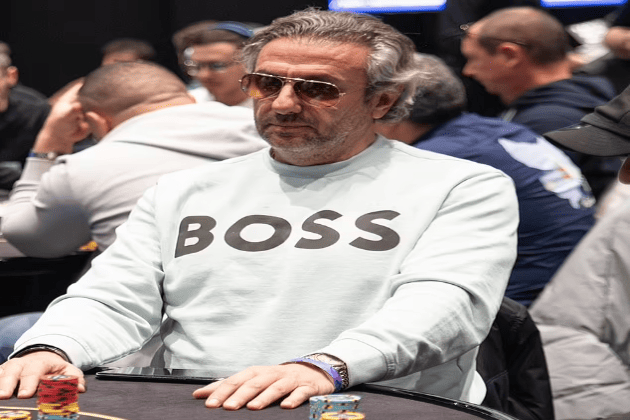Namibia's Shark Island: Europe's push for green hydrogen risks compromising sites of colonial genocide
The Conversation
17 Feb 2025, 12:39 GMT+10
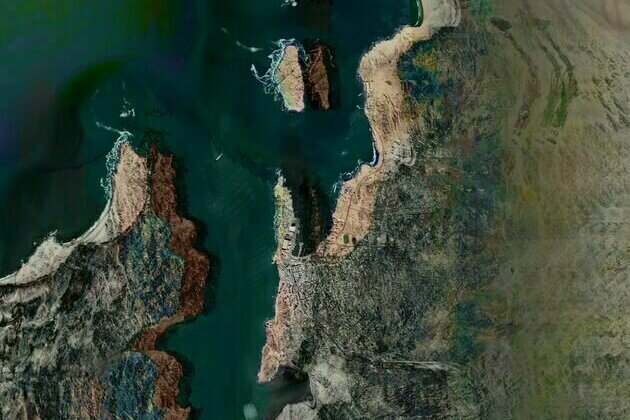
In September 2025, Namibia will host the Global African Hydrogen Summit. The Namibian government has ambitions to turn the country into a leading producer of green hydrogen for export to markets in Europe and elsewhere. However, the lands and waters now regarded as being essential to Europe's energy transition are tied to traumatic memories of colonial violence; especially the ocean, which is the final resting place for thousands of Namibians.
As countries around the world transition to renewable energy, an inconspicuous peninsula in Namibia known as Shark Island is positioned to play a key role in the production of so-called "green" hydrogen, which is a proposed alternative to fossil fuels.
However, the peninsula and its waters are at risk of being compromised by proposed port expansions to support the transportation of green hydrogen. Shark Island, near the town of Lderitz, is now a campsite for tourists.
But Shark Island is also called Death Island, and it was a concentration camp and a site of genocide during German colonial rule from 1884 to 1915. The concentration camp has since been destroyed, leaving little evidence of the violence that occurred there. However, recent international investigations highlight what many Namibians have known and worked on for generations.
In 1884, German colonizer Adolf Lderitz annexed Namibia, intending to finance colonial rule through minerals. Between 1904 and 1908, German colonial forces killed approximately 100,000 people (80 per cent of the Herero and half of the Nama population). The genocide also affected the Nukhoen and the Aonin communities.
During the genocide, those who were not immediately killed were sent to concentration camps, where they were forced to perform manual labour, such as working on railways and harbours. This occurred across Namibia, including on the coast: in Swakopmund and Lderitz alone, more than 1,550 Nama died.
The research agency Forensic Architecture has digitally reconstructed the camps and identified evidence of burial places. On Shark Island, they demonstrate that the port expansion "poses further imminent risk to the site."
Attention has been given to the land-based component of green hydrogen projects including the multinational joint venture, Hyphen Energy. But the ocean, which Namibia's development projects also interact with, is often overlooked as a space of memory, justice and relations. This is in part due to colonial and apartheid histories that erased or excluded people from the coasts and oceans.
During colonial rule, German colonizers incarcerated Namibians offshore aboard ships. They also threw the bodies of those who had died in the concentration camp into the ocean. The local saying "the sea will take you" highlights how the ocean is involuntarily tied to memories of death and trauma.
Namibians have not forgotten the violence that occurred on the land and at sea. Local groups are restoring grave sites and establishing memorials. The discussion of recognition, justice and equitable rights and access to the coast and ocean are important for Namibia's communities and the decedents of those killed during the genocide.
Green hydrogen has a central role in global decarbonization ambitions. Namibia is considered an "export production site" for Europe's future hydrogen economy. This is due to its solar and wind potential, and access to the ocean.
Hydrogen can only be produced in Namibia if the infrastructure exists to enable it. For example, hydrogen requires the industrial and transportation infrastructure to get it to international markets. To meet these demands, the Namibian Ports Authroity is proposing port expansions in the city of Walvis Bay and Lderitz, where expansion could have implications for Shark Island and its waters.
Campaigners in Namibia are demanding the government and industry halt the expansion plans on Shark Island, and meaningfully engage with reconciliation. Among them is the Windhoek-based Black Court Studio, where Natache Iilonga, co-author of this article, is the creative director.
These proposed developments signal the continued European dominance in Namibia's blue and green economy projects. They enable energy colonialism, where the push for green energy continues colonial injustices. European countries and industry perpetuate ecological, social and cultural harm to satisfy their own climate change agendas.
Projects and partnerships between Namibia and European countries like Germany are emblematic of (neo)colonial power relations. While these projects propose to foster co-operation, they also continue to dispossess communities from their lands and waters, and erase environmental and cultural relations.
Through "development assistance," the German government and non-governmental organizations continue to influence economic projects in Namibia, while avoiding discussion of meaningful reparations for colonial crimes.
Read more: Germany's genocide in Namibia: deal between the two governments falls short of delivering justice
The land and ocean are not merely passive witnesses to colonial violence. Black Court Studio incorporates the ocean as a dynamic participant in the conversation about these violent histories, and justice and healing. Through community exercises and counter-mapping, the studio explores people's socio-cultural relations with the ocean.
Together, the studio's interventions are beginning to resituate previously erased and forgotten connections with Shark Island. This work also highlights cultural and spiritual relations with the ocean that persist despite this dispossession.
Namibia's ocean and coasts are not empty spaces to be exploited for the benefit of Europe's energy future. A deeper understanding of histories, and present day connections, provide lessons for meaningful reconciliation.
 Share
Share
 Tweet
Tweet
 Share
Share
 Flip
Flip
 Email
Email
Watch latest videos
Subscribe and Follow
Get a daily dose of Africa Leader news through our daily email, its complimentary and keeps you fully up to date with world and business news as well.
News RELEASES
Publish news of your business, community or sports group, personnel appointments, major event and more by submitting a news release to Africa Leader.
More InformationInternational
SectionNavy jet crashes off San Diego; crew ejects, rescued by boat
LOS ANGELES, California: Two crew members ejected from a Navy jet before it crashed into the ocean near San Diego this week. A sportfishing...
WHO urges tobacco-style warnings on alcohol in Europe
GENEVA, Switzerland: The World Health Organization is pushing for bold, tobacco-style warning labels on alcoholic beverages across...
US judge approves extradition of Turkish author and son for car crash
BOSTON, Massachusetts: A U.S. judge has ruled that a Turkish author and her son can be sent back to Turkey to face charges. The son...
New York confirms first case of new mpox strain
NEW YORK CITY, New York: The New York State Department of Health has confirmed its first case of a new mpox strain, increasing concerns...
NASA swaps astronaut capsule to speed up Starliner crew’s return
WASHINGTON, D.C.: NASA changed the astronaut capsule for its next routine flight to the International Space Station (ISS). This change...
Fort Bragg name restored as defense secretary reverses 2023 change
FAYETTEVILLE, North Carolina: U.S. Defense Secretary Pete Hegseth has changed the name of the Army base Fort Liberty back to its original...
Business
SectionGlobal stocks close higher, U.S. dollar edges higher
London, UK - Monday's trading session ended with a diverse range of performances across global markets, as major indices posted modest...
Port of Brunswick in Georgia leads in auto shipments in US for 2024
SAVANNAH, Georgia: The Port of Brunswick became the top U.S. seaport for automobiles in 2024, growing rapidly and surpassing the Port...
Igloo recalls over a million coolers over handle defects
NEW YORK CITY, New York: Igloo is recalling over a million of its rolling coolers across the U.S., Mexico, and Canada after reports...
China accelerates coal expansion, surpasses 100GW in 2024
BEIJING, China: China's coal power expansion surged in 2024, with nearly 100 gigawatts of new coal plant capacity breaking ground—the...
Nissan faces significant loss after scrapping Honda integration
TOKYO, Japan: Nissan is bracing for a steep financial loss as it scraps plans for a business integration with Honda, the company announced...
UK trader wins Supreme Court fight against US extradition
LONDON, U.K.: A UK-based securities trader accused of insider dealing in the United States has won his legal battle against extradition,...


